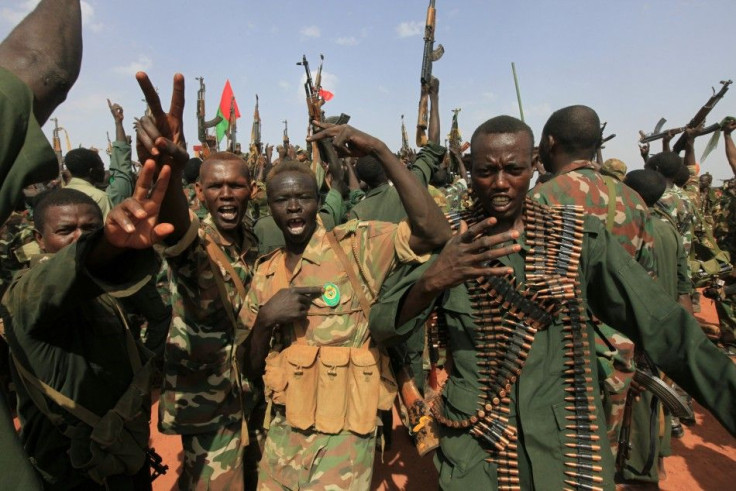Sudan Declares State Of Emergency Signaling Momentum Toward All-Out War

Sudan has declared a state of emergency along the border with South Sudan, indicating a greater impetus for an all-out war over disputed regions and natural resources.
The state of emergency, which suspends the constitution in border areas and imposes a trade embargo against South Sudan, allows President Omar al-Bashir to make arrests and set up special courts to tackle crime and terrorism, Sudan's official news agency SUNA reported.
Sudan said the state of emergency in the border districts of the states of South Kordofan, White Nile and Sennar is to, to achieve security and guarantee the protection of our citizens and repel any attacks.
South Sudan, on Sunday, held Sudan responsible for air strikes, after weeks of border fighting over oil revenue, border demarcation and citizenship issues.
Mac Paul, deputy director of South Sudan's military intelligence, said Sudan had launched air strikes after Southern troops left the disputed oil field of Heglig, targeting positions manned by South's army (SPLA) in Teshwin, which lies on the southern side of the border, Reuters reported.
Later on we had so many waves of attacks by SAF (Sudanese armed forces) deep inside South Sudan, Paul was quoted as saying.
It is a provocation because there have been both ground and aerial attacks in Teshwin and aerial attacks in Panakuach and Unity today, and as I talk the Antonov is still hovering, he said. Four SPLA soldiers had been killed and eleven wounded, he added.
Khartoum, however, has denied the accusation saying it had been resisting a rebel attack on a town in the South Kordofan state.
South Sudan's army said clashes with a militia group backed by Sudan left 21 people dead in Malakal, near the border. South's minister of information Barnaba Marial Benjamin termed the militia a mixture of Sudanese forces and southern militiamen.
Sudan's army spokesperson, referring to South's allegations of airstrikes against security personnel, said that the army was targeting rebels. Dozens of the rebels were killed. The army is expelling the remaining rebel forces, spokesman al-Sawarmi Khalid said.
South Sudan, meanwhile, said that it would recall its security forces from the disputed area of Abyei, in response to the demands from the African Union and the United Nations Security Council (UNSC).
Outright hostilities between the former civil war foes erupted this month when South Sudan seized the key oil-producing region of Heglig from Sudan, which soon regained control of it.
© Copyright IBTimes 2024. All rights reserved.












